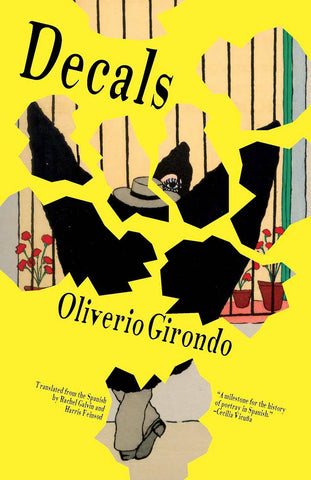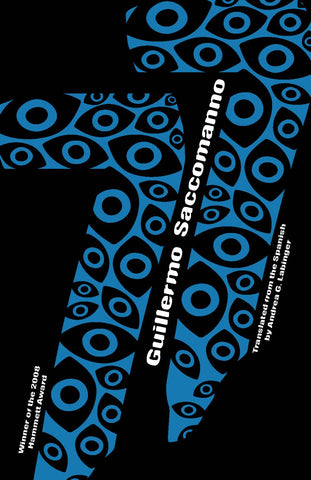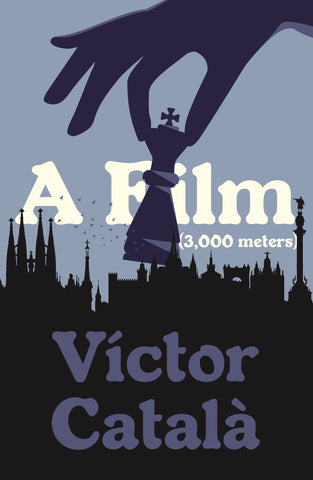Decals: Complete Early Poems
$16.95
December 11, 2018
poems | pb | 162 pgs.
5.5" x 8.5"
978-1-940953-87-8
"through surreal vignettes, quick-change imagery, and motifs of shadows and simulacra, Girondo’s early poetry evokes a similarly lugubrious atmosphere and cements his position as an essential Modernist writer" —Zack Anderson, American Microreviews
The portrait of Girondo that one gains from this excellent publication, however, is as singular as it is animated. —Gayle Rogers, Public Books
An important influence on Jorge Luis Borges and others, Oliverio Girondo was at the center of Argentine poetry in the twentieth century. His first two books demonstrate his cosmopolitan wanderlust and avant-garde aesthetics. Twenty Poems to Be Read on the Streetcar crisscrosses Europe and the Americas on trams, express trains, and ocean liners. Decalcomania takes the reader on a tour of Spain that cleverly deflates its romantic appeal, but reinvigorates it with a glamour found in Girondo’s intensive wordplay and idiosyncratic flare for metaphor.
Translated from the Spanish by Rachel Galvin & Harris Feinsod
Illustrations by the Author
•
About the Author:
Oliverio Girondo (Argentina, 1891-1967) was one of the most important Latin American poets of the twentieth century. He published seven volumes of poetry, including Twenty Poems to Be Read on the Streetcar, Decalcomania, Scarecrow (Within the Reach of All), and In the Moremarrow. He was at the center of an Argentine vanguard called the Grupo Florida, which included Jorge Luis Borges, Macedonio Fernández, Xul Solar, and Norah Lange, whom he married.
About the Translators:
Harris Feinsod is associate professor of English and Comparative Literature at Northwestern University. He is the author of a literary history, The Poetry of the Americas: From Good Neighbors to Countercultures, as well as many essays on modernist literature in Europe and the Americas. He is the director of Open Door Archive.
Rachel Galvin is an award-winning poet, translator, and scholar. Her books include two collections of poetry, Pulleys & Locomotion and Elevated Threat Level; a work of criticism, News of War: Civilian Poetry 1936-1945; and Hitting the Streets, a translation from the French of Raymond Queneau. She is a co-founder of the Outranspo, an international creative translation collective, and assistant professor at the University of Chicago.
•





